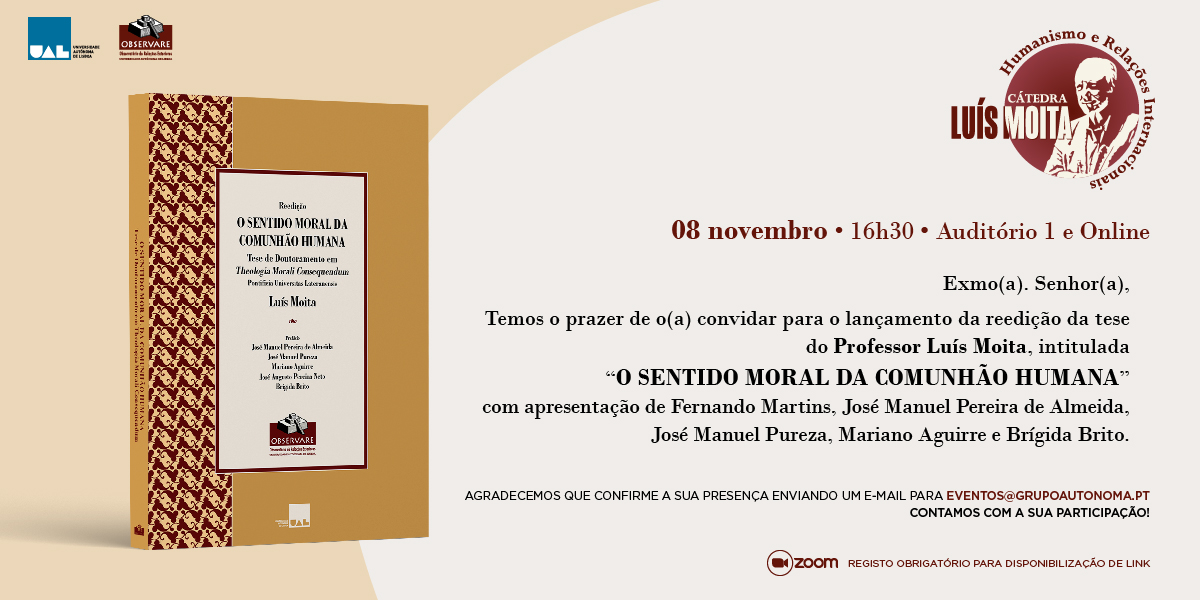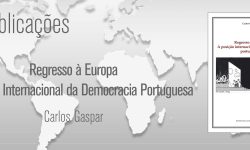Luís Moita’s doctoral thesis, now reissued in the OBSERVARE Collection, entitled ‘The moral meaning of human communion’ was presented and defended in public examinations in 1967 at the Pontificia Universitas Lateranensis in Rome, and published for the first time in 1988. This thesis deals with the important subject of human relationships and their implications.
The reflection and analysis presented demonstrate the importance of morality and ethics as the foundation of human relationships from the perspective of ‘being-with-others’ and ‘being-for-others’, sharing and living communio, in which the I and the You lose relevance in relation to the We. In a world marked by relational complexity, not always oriented towards being, should be and being-with-others, this thesis remains relevant, calling on the reader to prioritise the structuring values of communion in human relationships. These presuppositions are present in the concept of ‘attaching importance to the other’, based on morality. In his analysis, the author presents the principles of the moral meaning of human communion, relating them to ethics, highlighting fundamental questions from philosophy and other social sciences to also emphasise the importance of faith.
In the words of Luís Moita, ‘It’s about building a new, more fraternal and humane world, a world of universal convergence. Everyone must feel committed to this collective project, since they share in the common responsibility. In a word, historical awareness, so acute in our time, leads us to discover the solidarity character of human freedom and to deepen the moral demands of our commitment in the world.’ (Moita, 2024, p. 86). And ‘the moral ideal is the communion of people and that the ethical endeavour is orientated towards a human encounter that respects the individuality of each person and promotes collective solidarity’ (p.119).








